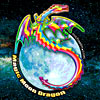
Mangoes are a fruit that grow on the mango tree.
- botanical information
- origin
- nutritional information
- selection
- magick correspondences and uses
- Goddesses and deities
- Chinese herbology
botanical information:
Botanical name: Mangifera indica
“Mango” comes from the Tamil word “mangay” and "“ndica” means “India”.
Common name: mango
Common name (dried unripe fruit): aamchur, amchoor, amchur, green mango powder
Use the botanical name when ordering seeds (bulbs, etc.) or when looking up information in the library. Common names vary by nation, culture, and region, and sometimes the same common name is applied to different plants.
French name: mangue
German name: mango
Indian name (powder): aamchoor, amchur: comes from the Hindu for mango, am, and powder, choor.
Italian name: mango
Spanish name: manguey
According to Fredrick Noronha, “No tree in history [of India] has been given as many names as the mango tree — it has been called Vasantaduta (messenger of Spring), Madhuduta (messenger of fragrance), Kamang (embodiment of Cupid), Kokilavasa (abode of cuckoos), and Kamavallabha (the amorous).”
The mango tree is related to the cashew and pistachio nut.
In addition to the mango fruit, a spice called amchur can be made by powdering the dried unripe fruit of the tree.
origin:
Origin: India, Burma, and the Malaysian peninsula. mango trees have been grown in India for at least 4,000 years.
nutritional information:
Mangos are a food that increases sexual energy and enhances fertility.
See also Chinese herbalism below for Chinese gender and Chinese flavor.
selection:
Mago has the number five (5) lowest pesticide load of 45 common fruits and vegetables studied in 2006 by the Environmental Working Group and is therefore a food that can be purchased conventionally-grown when organic isn“t available. The EWA explains, “While washing and rinsing fresh produce may reduce levels of some pesticides, it does not eliminate them. Peeling also reduces exposures, but valuable nutrients often go down the drain with the peel. The best option is to eat a varied diet, wash all produce, and choose organic when possible to reduce exposure to potentially harmful chemicals.”
According to USDA and FDA tests on commercially grown foods collected between 2000 and 2005, mango has a 7.1% (percentage) of samples tested with detectable pesticides, a 0.5% (percentage) of samples with two or more pesticides, an 0.1 average number of pesticides found in a sample, an average of 0.057 parts per million of all pesticides found, and 13 different pesticides found in use growing mango. These toxic pesticides don’t apply to organic foods.

magickal correspondences and uses:
Western element: fire
Magickal uses: Mango juice: used to inspire love and romance.
deities associated with mango:
- Buddha
Chinese herbalism:
Chinese gender: neutral
Chinese flavor: slightly sweet













